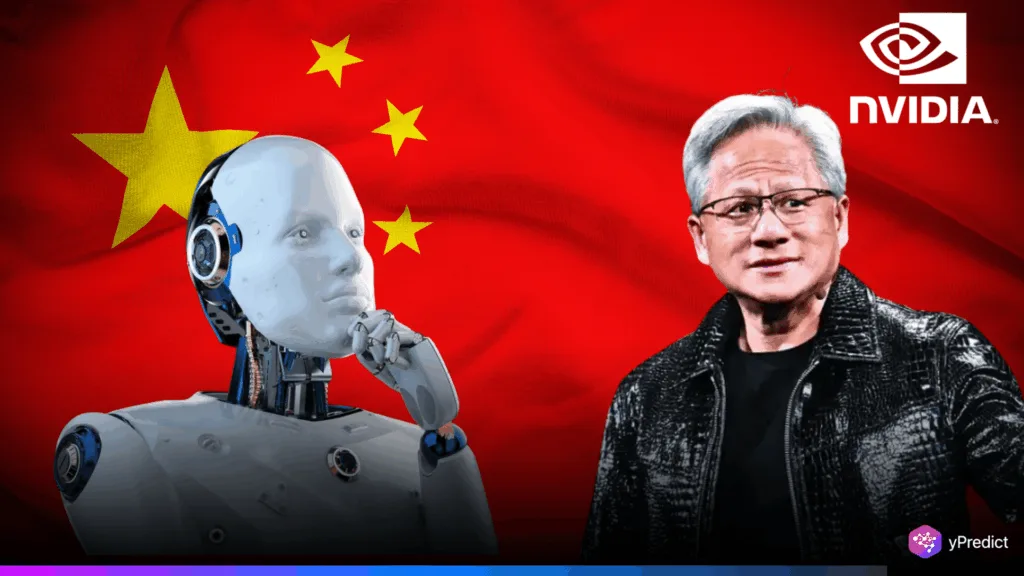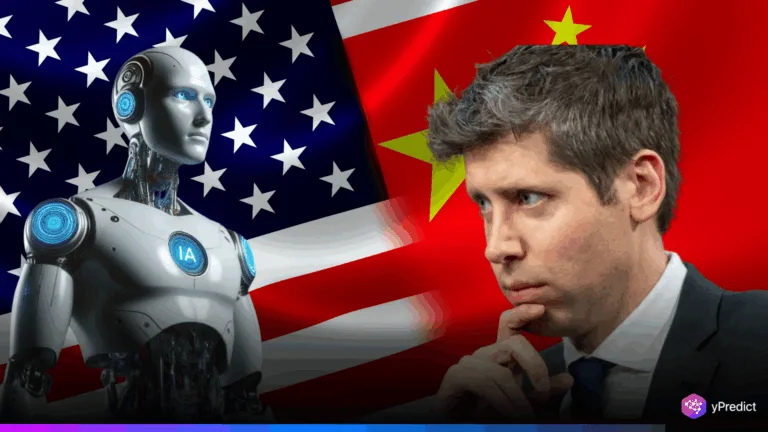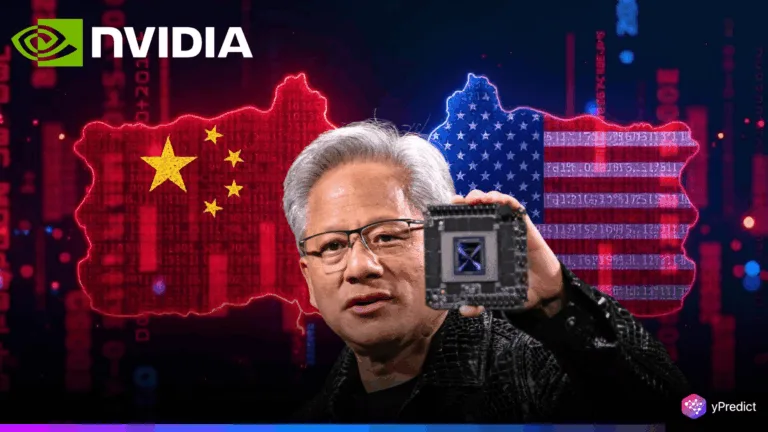
Nvidia CEO Jensen Huang warned that escalating U.S.-China tensions could severely damage American tech firms if access to China’s AI market is restricted. Huang expressed concern about the potential repercussions of increasing U.S. export restrictions on advanced AI processors to China. He stated that being locked out of China’s rapidly growing artificial intelligence (AI) market, valued at $50 billion, would result in a “tremendous loss” for the U.S. semiconductor industry and the broader global tech ecosystem. Huang said in a statement that,
It would be a tremendous loss not to be able to address it as an American company. It’s going to bring back revenues. It’s going to bring back taxes. It’s going to create lots of jobs here in the United States.”
The Strategic Value of China’s AI Market
As geopolitical tensions between the United States and China escalate, Nvidia finds itself at the center of a high-stakes battle with far-reaching consequences. The American chipmaker, known for its expertise in AI equipment, faces increasing restrictions on serving China, one of its key markets. These implications extend beyond corporate profits, affecting US technological competitiveness and job growth.
China’s AI sector is experiencing unprecedented growth, fueled by both government-backed infrastructure initiatives and surging demand from private enterprises. This booming market is expected to reach $50 billion by 2025, presenting a lucrative opportunity for global tech firms. Historically, Nvidia has relied on China for approximately 13–14% of its annual revenue, a contribution that equated to around $17.1 billion last fiscal year.
U.S. Policy Threatens Innovation and Market Leadership
Huang warned that U.S. export restrictions on AI to China could damage the American tech industry’s competitiveness. He spoke at events like ServiceNow Knowledge 2025 and a Washington policy meeting, highlighting the economic risks of limiting cooperation. Huang argued that continued exclusion from China’s AI market would hurt Nvidia’s growth and limit U.S. job creation and tax revenue. He stated in a CNBC interview that
It would be a tremendous loss not to be able to address it as an American company. It’s going to bring back revenues. It’s going to bring back taxes. It’s going to create lots of jobs here in the United States.
To comply with previous US export limitations, Nvidia created the H20 chip as a custom-designed alternative to its high-performance AI processors, such as the A100 and H100, which were already restricted. However, tighter export laws in 2025 made the H20 chip off-limits as well. This resulted in a significant $5.5 billion writedown and a sharp drop in Nvidia’s stock value. Despite adapting by creating compliant chip versions, losing access to China remains a significant challenge. At an April tech conference, Huang emphasized that China is not behind in AI, highlighting Huawei as a strong global competitor.
The broader implications of US export regulations are also harming Nvidia’s competitors. AMD, for example, recently announced a $1.5 billion revenue loss due to the most recent round of regulations. These limitations, which were first implemented in 2022 and have since been tightened, now extend beyond chipmakers to equipment suppliers and fabrication tool manufacturers, tightening control over the worldwide semiconductor supply chain.
Conclusion
Huang’s warning about losing access to China’s $50 billion AI market highlights a major issue in the broader debate over US technology policy. As geopolitical tensions rise and export rules tighten, American chip companies like Nvidia face increased risks. While national security concerns are important, industry experts argue that maintaining global AI supremacy requires access to key international markets.
If the US overlooks China’s AI advancements, it risks losing technological and economic ground to emerging global competitors, shifting the balance of power in the AI era.







